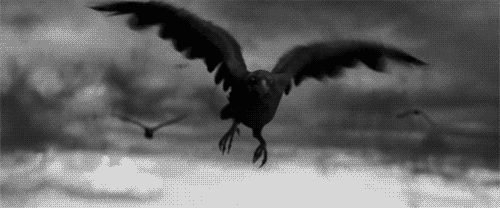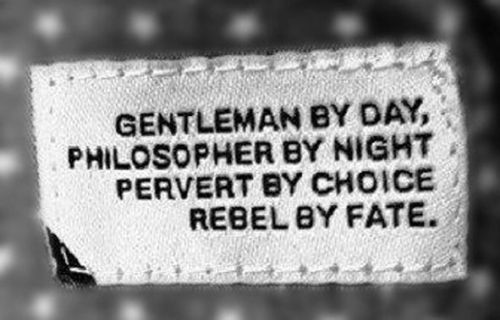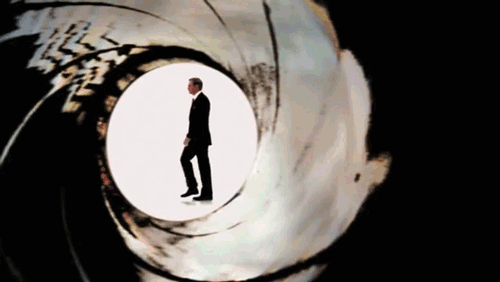
Murder by Death is a 1976 comedy movie written by Neil Simon and directed by Robert Moore. The plot is a spoof of the traditional country house whodunit, familiar to mystery fiction fans from classics such as Agatha Christie's And Then There Were None, a form also parodied for the stage in Tom Stoppard's The Real Inspector Hound. The cast is an ensemble of British and American comic stars playing send-ups of well-known fictional sleuths, and also features a rare performance by In Cold Blood author Truman Capote. The film was presented at the Venice International Film Festival, in 1976.
The plot takes place in and around the isolated country home inhabited by eccentric multi-millionaire Lionel Twain (Capote), his blind butler, Jamesir Bensonmum (Alec Guinness), and a deaf and mute maid called Yetta (Nancy Walker). As the movie opens, our heroes, all pastiches of famous detectives, are approaching the house through dense, fog-bound forest, accompanied by their assistants or sidekicks; it emerges that they have been invited to "dinner and a murder" over a weekend at Twain's mansion.
Inspector Sidney Wang, played by Peter Sellers, is based on Charlie Chan, and appropriately accompanied by his adopted, Japanese son Willie (Richard Narita). Wang wears elaborate Chinese costumes, and his grammar is frequently criticized by the host.
Dick and Dora Charleston (David Niven and Maggie Smith) are polished, sophisticated society types modeled on Nick and Nora Charles from the Thin Man series of films. Their excellent breeding gets them out of a few scrapes during the course of the weekend.
Milo Perrier (James Coco) is a take on Agatha Christie's Hercule Poirot, and arrives at the house with his chauffeur, Marcel Cassette (James Cromwell in his first feature film role). The portly Perrier is overly fond of food and appears annoyed that he must share a room with lowly Marcel, but is seen sharing his bed in one of the last scenes of the film. He is repeatedly annoyed by being mistaken for a Frenchman, as he is Belgian.
Sam Diamond represents the hard-boiled, American-style detective, a pastiche based on The Maltese Falcon's Sam Spade and Richard Diamond, Private Detective. Played by Peter Falk, he is ably assisted by Eileen Brennan as his tough but loyal secretary, Tess Skeffington.
Christie's other great creation, Miss Marple, appears here as Jessica Marbles, played by Elsa Lanchester as a hearty, tweed-clad Englishwoman, with a frail, seemingly gaga companion, her ancient "nurse" Miss Withers (played by Estelle Winwood, over 90 years old at the time), for whom she is now caring. Ironically, in real life, the two English-born actresses did not care for each other and exchanged mordant, biting insults.
The plot combines a convoluted, highly improbable murder-mystery arc with plenty of farce, slapstick, witty banter, and self-referential humour. Having lured his guests to his mansion (the address of which is given as "2-2 Twain"), Twain announces that, as a test of their sleuthing prowess, they are expected to solve a murder which will take place in the house at midnight that very night, with a reward of $1 million to the winner. The time comes and everything seems fine, until they discover that Twain himself has been murdered. The party spends the rest of the weekend investigating, dining, and bickering, manipulated by a mysterious behind-the-scenes force, confused by red herrings, baffled by the "mechanical marvel" that is Twain's house, and ultimately finding their own lives threatened. The ending piles on twist after twist as each sleuth presents his or her theory on the case.
After a brutal night where one pair is almost killed by a snake, another by a scorpion, another by a falling ceiling, a fourth by poison gas and the fifth by a bomb, they all collect in the office where the butler — believed to have been murdered earlier — is sitting behind the desk very much alive. Each detective has a different idea to who the real murderer is. However, the man sitting behind the desk has another surprise. He pulls off his mask to reveal he is Lionel Twain, the first victim. He takes a dig at detective stories for introducing crucial characters at the last minute for the traditional "twist in the tale", something which the assembled detectives had been doing a few minutes earlier. None of the detectives walk away with the million dollars for they were all wrong.
After the guests leave, Twain pulls off another mask, revealing "himself" to be Yetta, the deaf cook. It is not clear whether any murder has actually taken place. In the last spoken line of the movie, Sydney Wang, when asked if there was a murder or not, replies "Yes; killed good weekend!"
TRIVIA:
This movie marked the film debut of James Cromwell.
Orson Welles was originally considered for the role of Inspector Wang but was unable to accept because he was appearing in a play in Italy.
'Neil Simon' remained on the set to take care of re-writes, as he did with this picture's sequel, The Cheap Detective (1978). Simon took such a shine to Alec Guinness during the picture's production that he told him if he did not like anything in the film, he'd immediately rewrite it for him, but Guinness assured him it was great fun for him.
Myrna Loy was originally offered the part of Dora Charleston (a role that was a spoof of the character that she had played in the Thin Man movies) but she wisely declined, later stating that "it would have been ridiculous to have Myrna Loy doing Myrna Loy". She also stated that she didn't want her "ass pinched by David Niven".
During the first scene when Alec Guinness licks the stamps for the invitations, the stamps used were the 8 cent Dwight D. Eisenhower "No Dot", three-color stamps released in May 1971 and not the more popular 6 cent stamp released nearly a year earlier. First-class postage stamps were up to 13 cents by the time the movie was produced.
It was while working on this film that Alec Guinness received the script for Star Wars (1977). He read it between scenes in his dressing room.
All of the detectives in the film are parodies of the work of three authors: Dashiell Hammett, whose Nick Charles and Sam Spade were the basis for Dick Charleston and Sam Diamond, respectively; Agatha Christie, whose Hercule Poirot and Miss Marple inspired Milo Perrier and Miss Marbles; Earl Derr Biggers Charlie Chan was the basis for Inspector Sidney Wang and his son.
Immediately after completing the film, Peter Sellers was so convinced it was going to bomb, he convinced the producers to buy back his percentage share in the movie, thus depriving himself of a cut of the profits with the film when it went on to be a hit.
The screaming woman sound used as a doorbell is Fay Wray's screams from King Kong (1933).
Originally Katharine Hepburn was meant to play a character called Dame Abigail Christian (a spin on Agatha Christie). Hepburn dropped out after hearing Myrna Loy would not do the film. The character was changed to Dame Abigail Christmas, and Estelle Winwood took the role. After numerous re-writes Estelle became Nurse Withers to a new character, Elsa Lanchester's Miss Jessica Marbles.
Estelle Winwood's last movie.
Nancy Walker's last movie.
An interview with writer 'Neil Simon' in a DVD extra Murder by Death: A Conversation with Neil Simon (1999) (V) has him reveal that he and director Robert Moore at one time wished to replace Truman Capote with a real actor in the part of Lionel Twain but ultimately this never eventuated.
Three memorable scenes from this movie ended up on the cutting-room floor: 1) The Charlestons narrowly avoid hitting Tess Skeffington; she's hiking back to her and Sam Diamond's car, with gasoline from a station five miles away. "Thank Heaven you saw me when you did," she says. Dick makes sure she's okay - "Keep to the side of the road," he advises her - then simply drives off and leaves her to walk. 2) Willie Wang - upon rejoining the others in the drawing room, after covering up Lionel Twain's corpse in the dining hall - has noticed something that none of the others did: Twain was clutching a note in his hand. Without bothering to read the note first, Willie gloats about how he is a better detective than his own father gives him credit for: "I'm sick and tired of being just your #3 adopted son. The $1 million goes to whoever solves the crime, and that could be me just as well as you!" Then Sam takes the note at gunpoint ("Better stand back, Tess; I don't want you to get hurt when the bullet comes out his other ear") and reads it ("'Please call dairy and stop deliveries of milk; Lionel Twain deceased.' So much for your clue, kid"). Willie sheepishly apologizes to Sidney. 3) Leaving Twain Manor at the end of the movie, the Wangs pass a vintage car en route to the same destination. It's driven by Sherlock Holmes and Doctor Watson. They ask directions, which Sidney gives them despite Willie's efforts to warn them it's a ripoff. Willie asks why his pop didn't tell them the truth. Sidney's reply: "Let idiots find out for themselves."
Peter Sellers also played a taxi driver, but the scene was deleted.























No comments:
Post a Comment